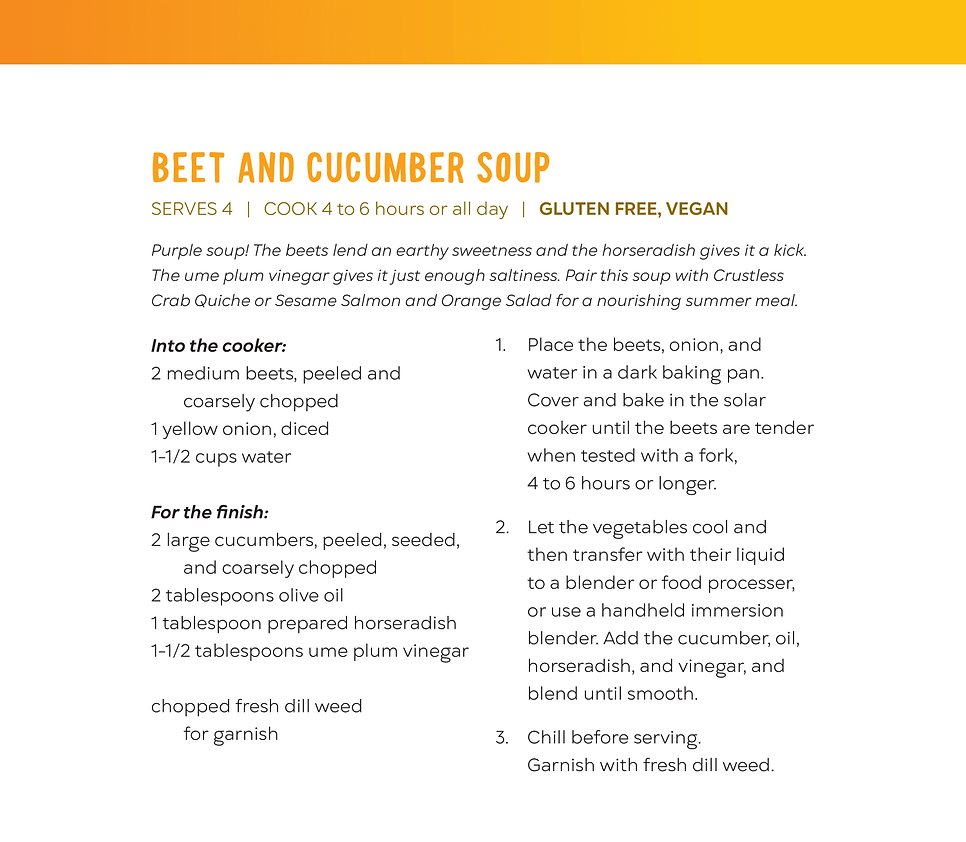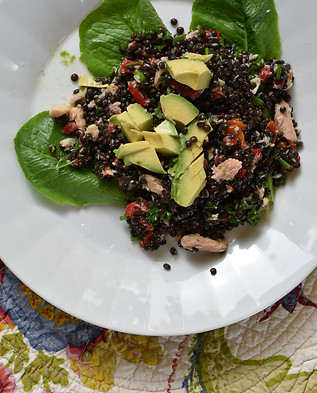
About Solar Cooking
A solar cooker works by focusing sunshine on a dark vessel that absorbs the rays and turns them into heat. You know this phenomenon from getting into a car that’s been parked in the sun. The simplest panel cookers heat food to between 200 and 250 degrees F. (Food cooks at 180 degrees F, and water boils at 212 degrees F.) More elaborate cookers reach higher temperatures.
Most Americans, including those who live in Seattle, Minneapolis, Boston, and New York City, can cook with sunshine all summer long. In fact, you can cook with sunshine if you live anywhere between the 60th parallels of latitude on Planet Earth. The closer you are to the equator, the more solar cooking days you’ll have. Check out how much solar radiation is available where you live.
To get started, you’ll need a solar cooker that you purchase or make, along with one or more thin-walled, dark-colored pots with lids. You’ll also need a few square feet in your yard, on your driveway, on a balcony or deck, or on your rooftop where you get full sunshine in the summer for most of the day. And you'll need a few good recipes.
About the Book
SLOW COOK SOLAR contains 100+ carefully curated plant-rich recipes for sun-baked meals that are simple, flavorful, and nutritious—whether you eat vegan, vegetarian, paleo, keto, flexitarian, or regenivore. Most are gluten free and emphasize fresh fruits and vegetables from the garden or farmers’ market.
2024 Silver Winner, Nautilus Book Awards
"Better Books for a Better World"







About the Author

Hi! I’m Lorraine Anderson. I first stumbled across solar cooking at the California State Fair in Sacramento in 1991 and soon started cooking with a homemade box cooker. Now I live in Corvallis, Oregon, with photographer Philip M. Lew and cook all our summer meals with sunshine.
I wrote SLOW COOK SOLAR to draw a wider audience to the magic and power of solar cooking. Though the number of solar cooking enthusiasts in the US has been steadily growing since my first cookbook, COOKING WITH SUNSHINE, came out in 2006, the US still lags the rest of the world in solar cooker uptake. It’s time for us to catch up!
I’m not a nutritionist, but I follow Michael Pollan’s dictum: “Eat food. Mostly plants. Not too much.” I would add that cooking seasonal, local, organic, whole (SLOW) foods using only the energy of the sun is a brilliant way to love ourselves and our planet.






